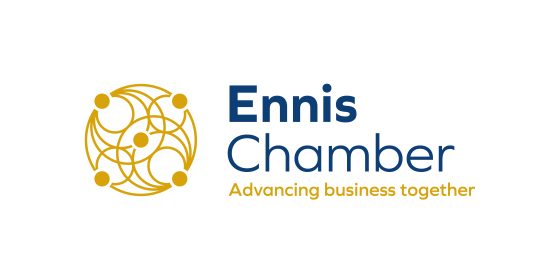Budget 2024 – Highlights for Business
There were no big surprises in the announcement of Budget 2024 earlier this week (10/10/2023), as most of the details had already been flagged over recent weeks.
Chambers Ireland budget priorities for 2024 were focused on Housing and Infrastructure, and the organisation’s expectations regarding the increased funding for both of these areas were met.
Increased Cost of Business (ICOB) Grant
Ennis Chamber and Chambers Ireland welcomes the extra €250m support for smaller businesses. While details have yet to be finalised it is known:
- Funding of €250m to provide a targeted refund to businesses who are rate payers.
- The rates grant will be paid through local authorities and benefit up to 130,000 micro and small businesses.
- The detailed terms and conditions attached to the grant are to be finalised.
The businesses that were most affected by Covid-19 will also be those most affected by energy costs, the increase in minimum wages, the additional leave entitlements that are arising in January and the introduction of autoenrollment pensions in 2024, using this mechanism to get support to those businesses will be efficient and effective.
Infrastructure
Chambers Ireland strongly supports the increased funding for infrastructure, and transport infrastructure in particular. This increased funding, financed through the excess Corporation Tax receipts, is vital to support the enhanced National Development Plan delivery. Our population is growing because of the opportunities which are available here in Ireland.
However, the greatest constraint on our economy is the lack of Infrastructure and Housing. These gaps are increasing costs and make it harder for businesses to attract and retain staff. Increasing the capacity of our economy through improving infrastructure is likely to see far greater returns on investment than investing our excess Corporation Taxes in the global economy.
Housing
The increased funding for retrofitting is welcome, and the €7 Billion in funding for the Department of Housing strongly supports the creation of projects where Local Authorities directly contract for the building of social housing as that will prevent them distorting the local housing market.
Personal Taxes and Inflation
Many of the personal tax changes that are to be implemented as part of Budget24 are inflationary. Inflation is a tax, so policies which reduce taxes for one part of society will see the inflation related costs distributed across the rest of the economy. While it is unclear at this stage where these inflationary costs will fall, it is likely that it will be businesses and lower waged workers that will carry the greatest load.
Savings Funds
The new savings funds are welcome, but, according to Chambers Ireland their focus is incorrect. The Future Ireland Fund seems to be another ‘national pension fund’ and is likely to be used in a similar way should the economic headwinds move against Ireland. Meanwhile, the ‘Infrastructure, Climate and Nature’ Fund is underpowered given the ambition of the National Development Plan, and the need to expand it in response to the faster than expected growth in population. Sequestering monies that could otherwise fuel inflation if they were spent too quickly otherwise is good governance, but more could have been done to strengthen these funds in this budget.
Tax Exemptions
We welcome the news that there will be a sub-group on the simplification of use of tax exemptions as there is a sense within the business community that the complexity of using these reliefs is a demand control measure. The Government needs to adhere more closely to the EU’s ‘Think Small First’ principles when implementing these schemes.
The review and roll out of entrepreneur reliefs related to Angel investors, EIIS, KEEP etc. is welcome but changes in these schemes have typically been incremental which has tended to limit the impact on their uptake.
Ireland is a country that does not compare well against peer nations when it comes to starting and scaling up businesses and there is a huge opportunity cost that is associated with this, a fact that is demonstrated by the difficulties the Irish Stock Exchange is facing.
A pro-growth perspective for companies that are operating within the Irish domestic economy is vital for our long-term sustainability, and to compensate for our national over-reliance on the Corporation Tax receipts that originate from a small number of firms.
Ends
October 10, 2023





